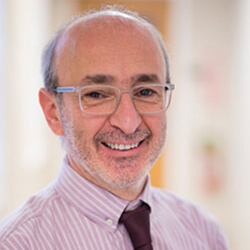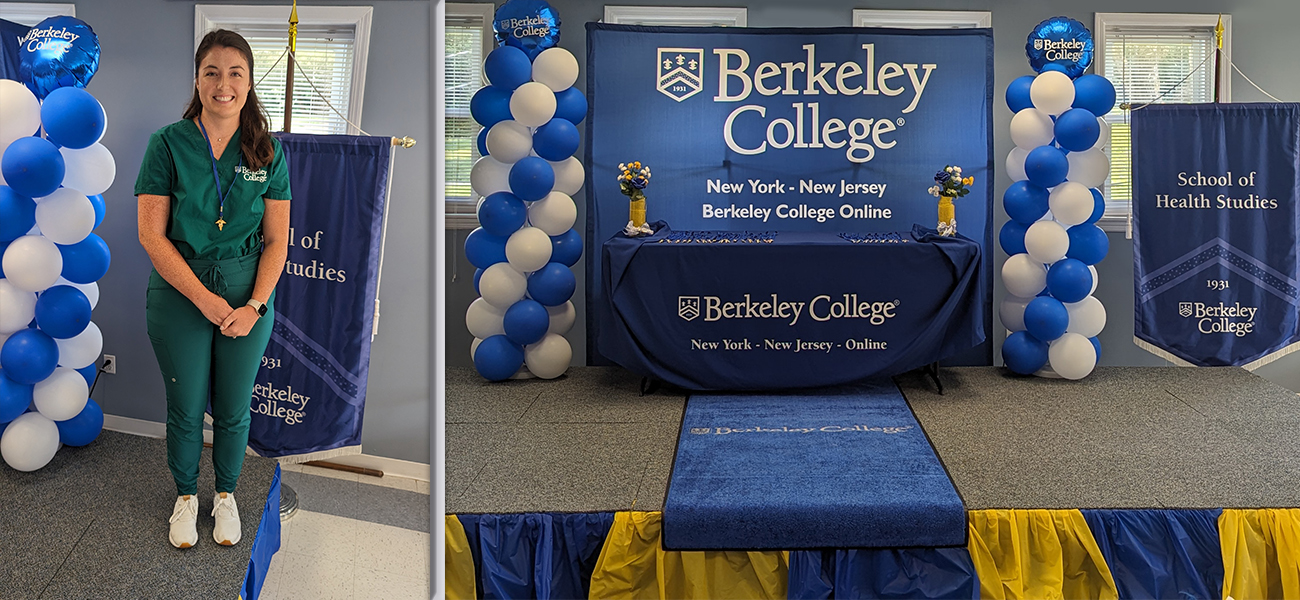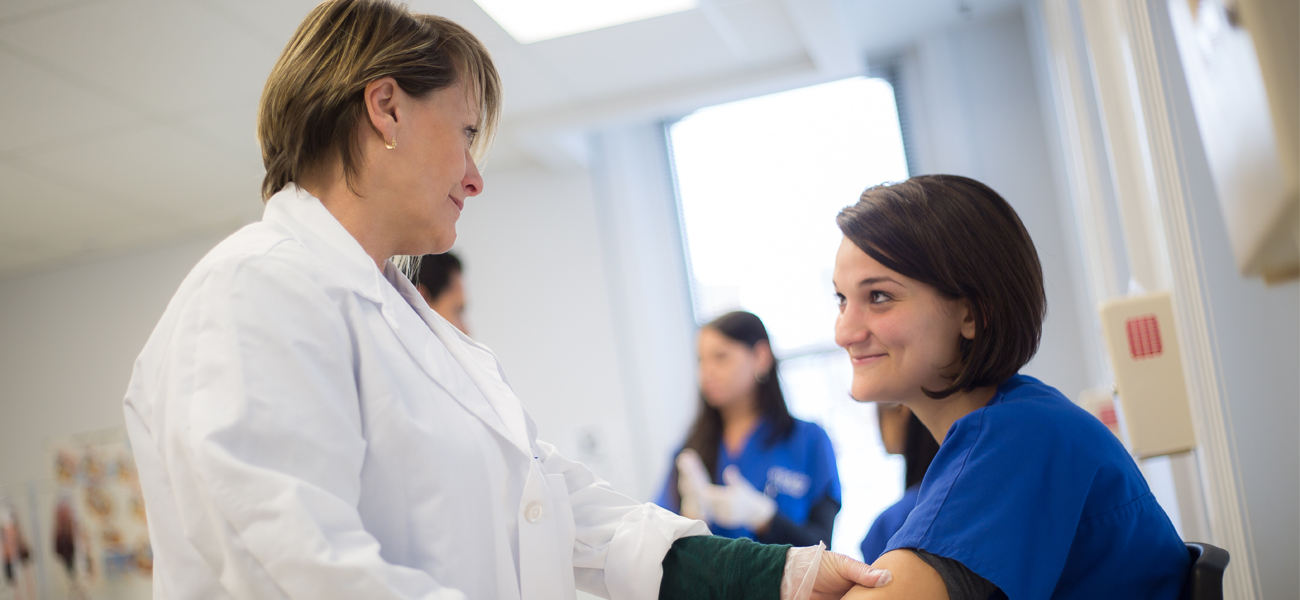Medical Assistant Programs
Medical Assistant Associate in Applied Science Degree (AAS)Medical Assistant Certificate Program
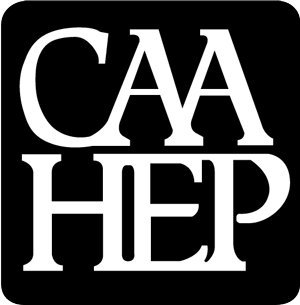
An accredited program to begin a career as a Medical Assistant
The Berkeley College Medical Assistant certificate program is accredited by the Commission on Accreditation of Allied Health Education Programs (CAAHEP). Enrolling in a CAAHEP-accredited program will ensure you are on the right path to building a successful career as a medical assistant.
Berkeley’s Medical Assistant programs can prepare you to become a valuable member of a medical team in one of today’s most in-demand career fields. Through hands-on training from experienced healthcare professionals, you’ll develop the knowledge and learn the skills needed to work in a range of healthcare facilities.
Add credentials, licenses, and certifications to help advance your career
You’ll also have the option of continuing your education to expand your career possibilities and increase your earning potential. As an example, read about Kristin Trainor, who began in a Medical Assistant program, transferred some of her credits toward a Practical Nurse program, continued on to earn a Bachelor of Science in Nursing (BSN), and is even considering a Master of Science in Nursing (MSN) degree for the future. Many employers offer tuition assistance programs, making it easier to add skills and professional credentials while you’re working.
The College also offers an Associate in Applied Science Medical Assistant degree program, which is an extension of the career-track certificate program. Unlike other Medical Assistant programs, graduates of Berkeley College’s degree program also receive a certificate in Medical Assistant.
Both the Medical Assistant certificate and degree programs are designed to prepare medical assistants who are competent in the cognitive (knowledge), psychomotor (skills), and affective (behavior) learning domains to enter the profession. This is accomplished by providing curriculum relating to patient care skills, general study, and administrative/business skills.
Medical assistants perform administrative and clinical tasks to keep the offices of physicians, podiatrists, chiropractors, and other health practitioners running smoothly. You’ll learn to:
- Take vital signs
- Prepare patients and assist physicians during examinations
- Collect and prepare laboratory specimens
- Perform basic laboratory tests
- Schedule appointments, bill patients, fill out insurance forms, and much more
The programs can prepare you to enter the high-demand field of healthcare and to work in a variety of settings, including physicians’ offices, hospitals, and other professional healthcare facilities. You’ll be prepared to meet both the clinical and administrative challenges of today’s rapidly changing healthcare environment.
The programs cover a wide range of areas, including:
- Medical office administration
- Medical terminology
- Pharmacology and human diseases
- Clinical procedures such as electrocardiography (EKG), venipuncture, and specimen collection
The Medical Assistant Certificate program (33 credits) is designed to be completed in 45 weeks.
The Medical Assistant Associate’s degree program (60 credits) can be completed in as little as 60 weeks.
Medical Assistant students benefit from:
- A strong foundation in both the theory and practice of clinical care
- Hands-on learning in on-site medical laboratories that simulate the clinical environment
- Instruction in the use of relevant medical devices and software
- Valuable, practical experience through a program-related, faculty-monitored practicum
- Liberal arts and sciences courses that provide students with a foundation of skills and knowledge necessary to reason clearly and communicate effectively
Certification
The Medical Assistant Certificate program is accredited by the Commission on Accreditation of Allied Health Education Programs (CAAHEP) upon the recommendation of the Medical Assisting Education Review Board (MAERB). Graduates of CAAHEP-accredited Medical Assistant programs are eligible to sit for credentialing examinations accredited by the National Commission for Certifying Agencies (NCCA). These examinations include:
- Certified Medical Assistant - CMA (AAMA)
- Registered Medical Assistant - RMA (AMT)
- National Certified Medical Assistant - NCMA (NCCT)
- Clinical Certified Medical Assistant - CCMA (NHA)
- Clinical Medical Assistant Certification – CMAC (AMCA)
These designations are accredited, national credentials indicating that the Medical Assistant meets certain standards of competence. Although certification is not required to work in most states, employers prefer to hire certified Medical Assistants. In the State of New Jersey, Medical Assistants need to hold a medical assistant credential in order to be permitted to administer injections under the direction of a physician.
The Medical Assistant Certificate program at Berkeley College has a five-year average of 76.38% for job placement, and 83.92% for exam pass rate for the years 2020-2024 as shown in the table below.
| Date | Job Placement | Exam Passage |
|---|---|---|
| 2024 | 77.78% | 96.30% |
| 2023 | 80.00% | 90.00% |
| 2022 | 78.79% | 84.85% |
| 2021 | 79.25% | 84.91% |
| 2020 | 67.39% | 69.57% |
| Five-Year Average | 76.38% | 83.92% |
Accreditation
Accreditation makes a difference

Berkeley College’s Medical Assistant Certificate program is accredited by the Commission on Accreditation of Allied Health Education Programs (CAAHEP). Enrolling at a CAAHEP accredited program will ensure you are on the right path to building a successful career as a Medical Assistant.
The College also offers an Associate in Applied Science Medical Assistant degree program, which is an extension of the career-track Certificate program. Unlike other Medical Assistant programs, graduates of Berkeley College’s degree program also receive a Certificate in Medical Assistant.
Career Opportunities
Graduates of the Medical Assistant programs will be prepared to pursue a range of roles in physicians’ offices, outpatient clinics, hospitals, and various other healthcare facilities. These positions include:
- Certified Medical Assistant
- Registered Medical Assistant
- Certified Clinical Medical Assistant
- Certified Electrocardiography Technician
- Certified Phlebotomy Technician
According to the Bureau of Labor Statistics (BLS), employment of medical assistants is projected to grow 16 percent from 2021 to 2031, much faster than the average for all occupations. About 123,000 openings for medical assistants are projected each year, on average, over the decade. These openings are expected to result from workers retiring, as well as the increase in older populations which typically have more healthcare concerns than younger age groups.
Source: Bureau of Labor Statistics (BLS) Occupational Outlook Handbook
Catalog
Medical Assistant Programs
You’ll find additional information in our Catalog, including the different degrees offered, descriptions of the courses you’ll take, the department faculty, and much more. You can always contact us with questions.
Faculty
Allied Health Medical
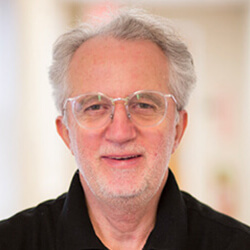
Shkelzen Badivuku (Chair)

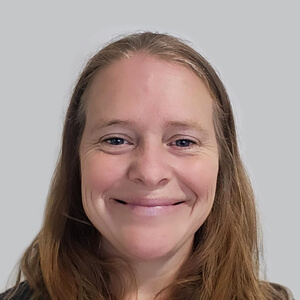
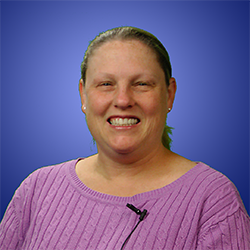
Locations Offered
The Medical Assistant programs are offered by Berkeley College New Jersey at the Newark, Woodbridge, and Woodland Park campuses.
Frequently Asked Questions: Medical Assistant
The Medical Assistant programs are designed to prepare medical assistants who are competent in the cognitive (knowledge), psychomotor (skills), and affective (behavior) learning domains to enter the profession. This is accomplished by providing curriculum relating to patient care skills, general study, and administrative/business skills.
Students in the programs gain experience in a wide variety of areas, including:
- Clinical procedures such as electrocardiography (EKG), venipuncture, and specimen collection
- Medical office administration
- Medical terminology
- Pharmacology and human diseases
Graduates are prepared to meet both the clinical and administrative challenges of today’s rapidly changing healthcare environment.
The Associate in Applied Science degree program is an extension of the career-track Certificate program.
Graduates of the Medical Assistant programs are eligible to sit for a variety of certification examinations, including:
- Certified Medical Assistant - CMA (AAMA)
- Registered Medical Assistant - RMA (AMT)
- Certified Clinical Medical Assistant - CCMA (NHA)
- Certified Electrocardiography - CET (NHA)
- Certified Phlebotomy - CPT (NHA)
- Basic Life Support for Healthcare Providers - BLS (AHA)
The College considers students for admission to degree and certificate programs on the basis of future potential, the motivation and interest to succeed in a chosen profession, and past academic achievement.
Graduation from high school or the equivalent is a basic requirement for admission to degree and certificate programs. In evaluating candidates, the Committee on Admissions takes into consideration your individual interests, your motivation to succeed in a chosen profession, and prior academic achievement. Basic requirements for admission include graduation from an accredited high school or equivalent and an entrance exam or SAT/ACT scores. Applicants to some programs offered within the School of Health Studies may have additional requirements, including successful completion of the HESI® Admission Assessment (A2) with Critical Thinking entrance examination. Documentation of successful completion of high school or the equivalent must be submitted to the College prior to starting classes.
A personal interview is strongly recommended. Applicants are encouraged to contact the Director of Admissions at the campus of their choice to arrange for an appointment with an Admissions Associate. For further information, students may also call the College at 866-317-6087 or email info@BerkeleyCollege.edu.
Berkeley maintains a rolling admissions policy, so students are encouraged to apply as early as possible. Applicants will be notified of a decision as soon as all credentials have been evaluated. Certain programs may have specific application deadline requirements.
For further questions about the enrollment process, schedule an appointment with an associate.
The Medical Assistant programs are offered by Berkeley College New Jersey at the Newark, Woodbridge, and Woodland Park campuses.
Berkeley College’s Medical Assistant Certificate and Associate in Applied Science degree programs prepare students to enter the high-demand field of healthcare and to work in a variety of settings, including:
- Physicians’ office
- Outpatient clinics
- Hospitals
- Other healthcare facilities
According to the Bureau of Labor Statistics (BLS), employment of medical assistants is projected to grow 16 percent from 2021 to 2031, much faster than the average for all occupations. About 123,000 openings for medical assistants are projected each year, on average, over the decade. These openings are expected to result from workers retiring, as well as the increase in older populations which typically have more healthcare concerns than younger age groups.
Source: Bureau of Labor Statistics (BLS) Occupational Outlook Handbook
Professional Licensure & Certification
Information about professional licensure and/or certification requirements for this program is available online at: https://berkeleycollege.edu/about/accreditation-regulatory/professional-licensure-and-certification/index.html
Testimonials
Asjalai Crutchfield
Berkeley College Alumna
“The professors really connect with students and are very supportive. You can be certified in various areas and start working in doctors’ offices, clinics, hospitals, etc. while still working toward your degree. My plans are to work my way up in the medical field, becoming an LPN and then an RN.”
Esther Dillon
Berkeley College Alumna
“Every one of my professors made themselves constantly available through office hours or email. They would personally comment on test or quiz grades, on how I was doing, or where to focus for next time. I think the practical hands-on experience both in the classroom and in our practicum placements in real doctors’ offices were incredibly helpful. When I graduated and began my first career job as a medical assistant, I felt incredibly competent, capable, and ready.“
Katrina Gilliam
Berkeley College Alumna
“I chose Berkeley's MA program because I wanted to get a start in the medical field toward my career. What stood out to me was all the certifications I can receive before I complete my program to become a certified MA. I can become certified as an EKG tech or a Phlebotomist before actually graduating the program.”
Noelle Greene
Berkeley College Alumna
"The supportive professors make Berkeley College special. They’ve kept me focused on my career goals and helped me when I had difficulty with my studies. They care about us and push us to do our best."
Jazneiry Gutierrez
Berkeley College Alumna
“I choose the Berkeley Medical Assistant program because I will graduate with multiple certifications. The professors connect with students and make sure we’re on top of our work. I plan to continue in school and work toward being an RN or Nurse Practitioner."
Carly Rosen
Berkeley College Alumna
“Practicum is vital! I will never forget [my professors] all telling me, ‘You got this!’ It's those real-life interactions that make the book information click and everything just falls into place. What stood out to me about the program was the success rate and the ‘it is what you make it’ approach. The doctors at this school really contribute so well and my experience from starting out with admissions to walking across that stage was just top-notch."

